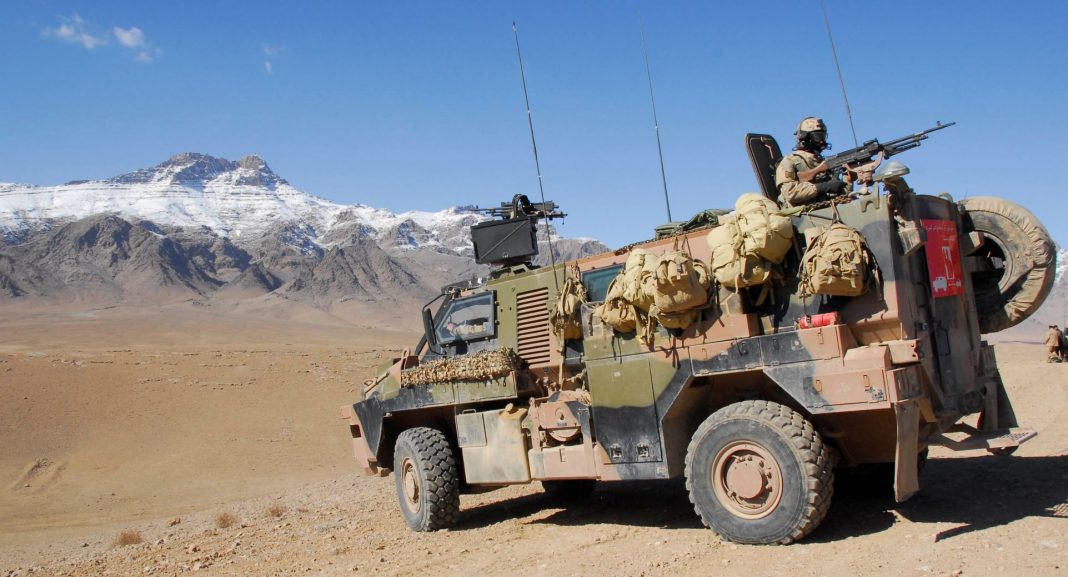Observing events in Afghanistan at present is a little like watching a car crash in slow motion; the ultimate disastrous outcome has a grim inevitability. It is now a question of when, not whether, the central government falls and the Taliban resumes control.
That situation has led some commentators to pronounce the 2001 invasion by the US and its allies – including Australia – wrong. Our defeat, they say, demonstrates that it was wrong to wage this war.
Measuring the moral case for a war by its outcome has an appealing simplicity, but the more closely one examines this yardstick, the more problematic it becomes. At its heart, it proceeds on the assumption that Good always triumphs over Evil – a belief I held as a child but can find little evidence for as an adult.
Using this yardstick, we can conclude that the Anglo-Saxons deserved to lose the Battle of Hastings in 1066, that righteousness was on the side of the Turks when they snuffed out the Greek empire at Constantinople in 1452, and it was the Scots’ moral turpitude that pre-ordained their defeat by the English at Culloden in 1745. Hmmm.
Conversely, would the Allies have been “wrong” to fight the Second World War if they had been defeated, and Hitler, Mussolini and Tojo had succeeded?
A frank appraisal of the Afghan war requires more sophistication than this test affords. A better test is to ask, what did we achieve, and was it worth the effort? That question was partly answered this week by an Afghan woman, who said:
“There has been 20 years of development, 20 years of some sort of democracy and freedom experienced by the people, so we have changed as people and as a generation.” She referred, in particular, to the empowerment of women. Girls are now educated in Afghanistan, infant and maternal mortality rates are much lower, and women play a role in public life and the economy.
All of this will end when the Taliban return. The apparatus of democratic government will be smashed. Women will be driven back to their cooking pots and into their burkas.
And so the question must be asked: was it wrong of Western powers to offer the Afghan people this brief taste of a better, fairer society? Or would it have been better for them these last 20 years if they had remained under the benighted medievalism which Taliban rule represents?
I no longer believe in the inevitable triumph of Good over Evil, but I do believe that the rights and freedoms of liberal, democratic society is the birthright of all human beings, even if that birthright is withheld from millions of them. And so I cannot bring myself to condemn the efforts – however poorly executed – of those who have laboured since 2001 to implant those rights and freedoms in Afghanistan.
Who knows, but a hope may have been sparked in Afghan hearts that even the Taliban will find hard to snuff out.
Read more:



